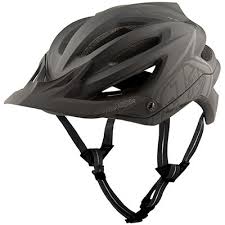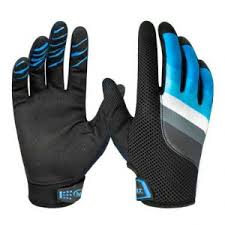
About Road Cycling
Road Cycling has been part of sports event since the invention of bicycles. The riders race amongst each other over a dedicated distance. The rider crossing the finish line first declared as the winner.
The road racing cycles are much lighter than conventional bicycles having drop handlebars providing riders with an aerodynamic seating position. The bicycle has gears to climb uphill efficiently.
The race itself is a long-distance race, with different distance for men and women. Riders ride through a designated path with proper signs denoting the path. The path is a turf road going through the usual climb and descent found in the countryside.
Road cycling is a popular sport and consisting of two parts. In single-day racing all the riders start from starting line at once. The second is the time trial, where individual rider ride through the distance setting their times.
Men and women participate in this sport in their respective race category. Riders have to be extremely fit and agile with adequate knowledge of their equipment.
Union Cycliste Internationale (UCI) is the governing body of this sport. They formulate rules and maintain the specifications of the bicycles and organise this sport at different sporting arena based on their sporting calendar.
Road Cycling Olympic 2020 logo : ![]()
History
Road cycling first made its appearance in 1868 and popular among western European countries. This sport was included in the first modern Olympics games in 1896 in Athens and ever since an integral part of the Olympics.
Women’s road cycling got introduced in the 1984 Los Angeles Olympic game.
Union Cycliste Internationale (UCI) is the governing body of this sport. They formulate rules and maintain the specifications of the bicycles and organise this sport at different sporting arena based on their sporting calendar.
Objective
The objective of this sport is to complete the race distance in minimal time. The rider reaching the finish line first is the winner.
In a time trial event, the rider who clocks the minimal time completing the race distance is the winner.
The riders must be fit and agile to complete the race distance along the turf road that includes uphill climb and decent.
Race Course
 The racecourse is a regular road designated for the sport going through the countryside. The race held in a single day, and the distance ranges to 280 kilometres. For Olympics 2020, this distance of the course is around 244 kilometres for Men and 147 kilometres for women.
The racecourse is a regular road designated for the sport going through the countryside. The race held in a single day, and the distance ranges to 280 kilometres. For Olympics 2020, this distance of the course is around 244 kilometres for Men and 147 kilometres for women.
For the time trial, the course duration is 44.2 kilometres for men and 22.1 kilometres for women. There can be a maximum of two riders per nation, and the riders must qualify the UCI time guidelines for participating in this event.
Strategy
The single-day road race can feature a single or a team of riders from a nation. Riding as a team always helps the rider to exchange their leadership positions and follow the slipstream of their leader to conserve their energy.
Riders are always on the lookout to accelerate and break away from the group and establish a lead and try to maintain the lead throughout while the rest of the group tries to catch.
Equipments

Road cycles are gear based cycles much lighter than the conventional cycle. They are fitted with drop handlebars to provide riders with an aerodynamic seating position, and these cycles have brakes to alter their speed.
The modern road racing cycle has two front chainrings, and 11 gear rings in the back wheel. The use of carbon fibre has made the cycles lighter and more aerodynamic.
Tyres are narrow, lightweight and have smooth or narrow tread to decrease air and rolling resistance. Tyres are inflated to high pressure ranging from 8 to 14 bars. The bicycle wheels should be between 55 cms to 70 cms and must have a minimum of 12 spokes with a tyre width of 25 mm.
The saddle should be 24 to 30 cms in length, and the minimum mass of the cycle should not be below 6.8 kgs.
Safety Equipments
Road cycling is a long distance sport. Safety of riders are of paramount importance in this sport.
Crash Helmets: Wearing helmets is a mandatory requirement for a rider. Helmets should be worn by the rider at all times during riding, whether during competition warm-ups or practice.

Clothing: The rider should not wear loose clothing that could be tangled, in the rider cycle. They should wear comfortable clothing that should not display any offensive message or image that spoils the spirit of the game.
Visual Identification: The riders should always wear the visual identification sign provided by the organiser.
Gloves: Wearing gloves is a mandatory requirement for a rider. This is required to protect their hands against falling across the rough terrain of mountains. They also help riders to maintain a firm grip on their handles.

Shoes: Riders should wear proper racing shoes at all times during riding, whether during competition warm-ups or practice.
Sports Officials
The following officials keep a strict eye on the performance of the participants.
Technical Delegate: A technical delegate is appointed by UCI, with the responsibility to supervise the preparation of the event covering technical aspects. The role includes carrying out an inspection of the entire track and ascertaining that the recommendations made by him are implemented.
Commissaire: The Commissaire is the official responsible for controlling the sporting aspect of the competition. They are appointed by UCI.
Officials: The officials follow the race in their vehicles and keep a strict vigil on the race and its participants.
- The car of the president of the commissaires panel.
- The second commissaire’s car.
- The third commissaire’s car.
- The fourth commissaire’s car.
- The organizing committee manager’s car.
- The UCI technical delegate’s car.
- The doctor’s car.
- Two ambulances.
- The police car.
- A maximum of three camera motor-cycles and one sound motor cycle.
- Two commissaire’s motorcycles.
- Two photographers’ motorcycles
- The regulator(s)’ motorcycle(s).
- Two information motorcycles.
- The doctor’s motorcycle.
- The time board motorcycle.
- The police motor-cycles.
Rules Of Road Cycling
- The participating riders must be registered by UCI. They should be dressed up in their riding gear.
- Men or women riders should be aged 23 and above to be able to participate in the elite category in Olympics.
- The riders number provided by the organiser, must be clearly displayed during riding.
- Riders should not interfere with the progress of other riders. In case of any problem with the bike, rider should take the bike away from the road, fix the problem and then rejoin the race.
- Riders are allowed to carry hydration drinks and nutritional food which they can consume during the race.
- A rider should hand over their identification number if they retire at any stage during the event.
- Riders are not allowed to carry any radio links or any other means of communication devices.
- Riders must start as a single group.
- Riders are allowed to continue the race in case of a fall or puncture, if they can continue the race without any external help.
- The maximum number of riders participating from a nation is 4-5, depending upon UCI regulations.
- Riders should follow theroute laid out by the organisers strictly. Any deviations or shortcuts may lead to their disqualification.
- Inappropriate behaviour towards marshals or race organisers can lead to disqualification or the rider.
World Rankings
- Mens Road Cycling
- France

- Slovenia

- Belgium

- Womens Road Cycling
- Netherland

- Italy

- Germany





 (2 votes, average: 5.00 out of 5)
(2 votes, average: 5.00 out of 5)


